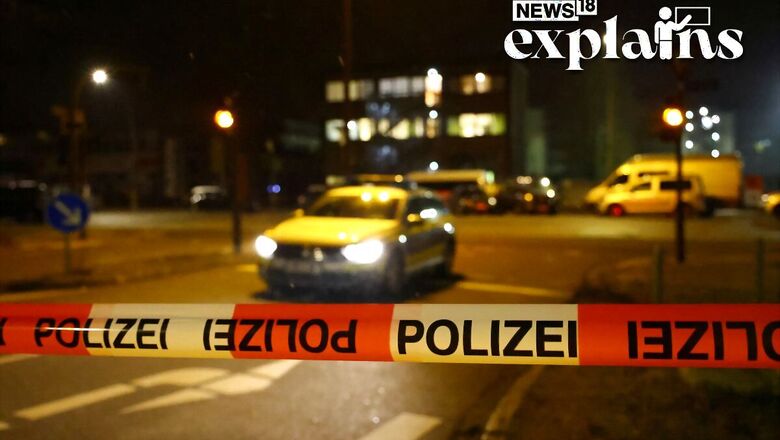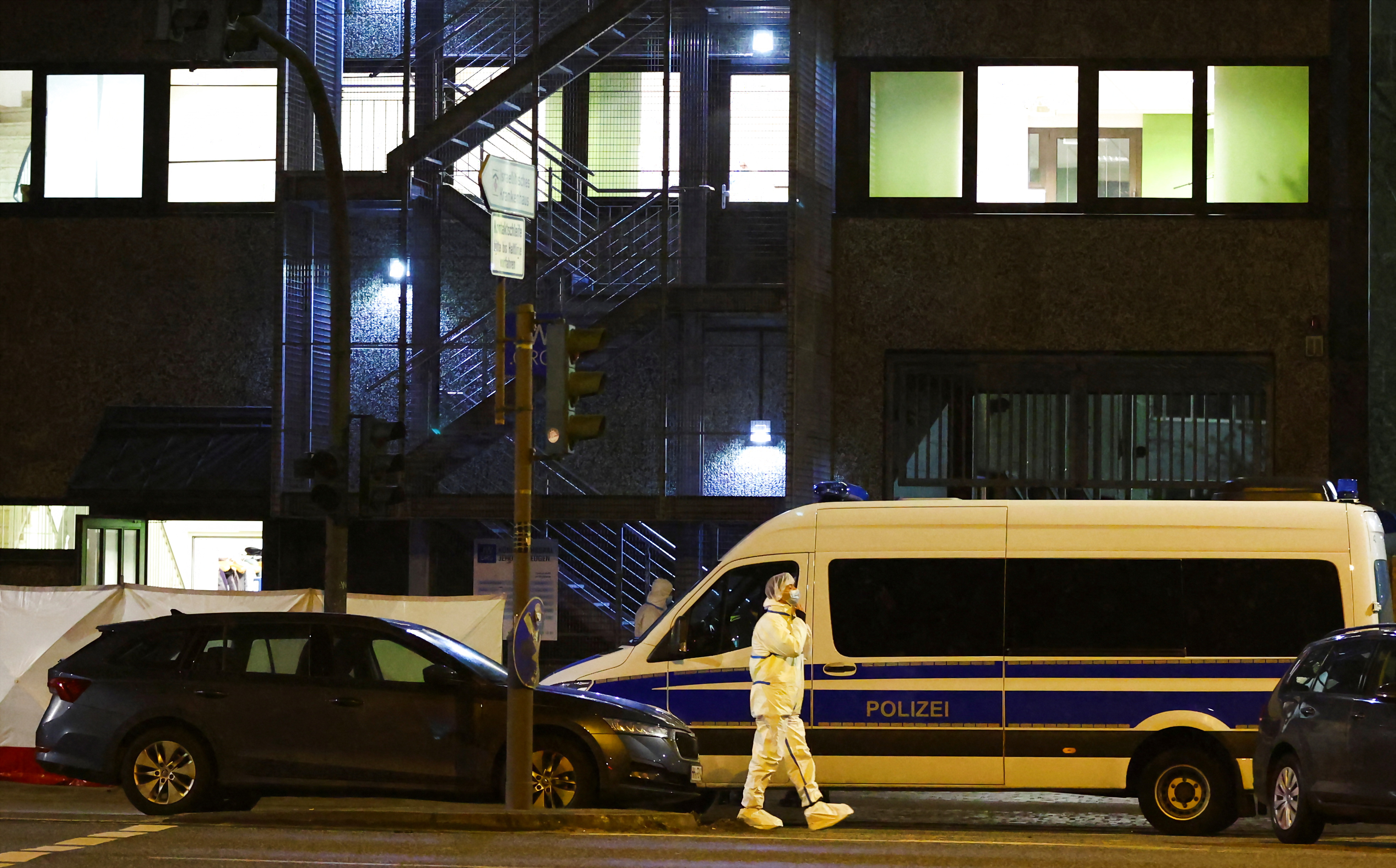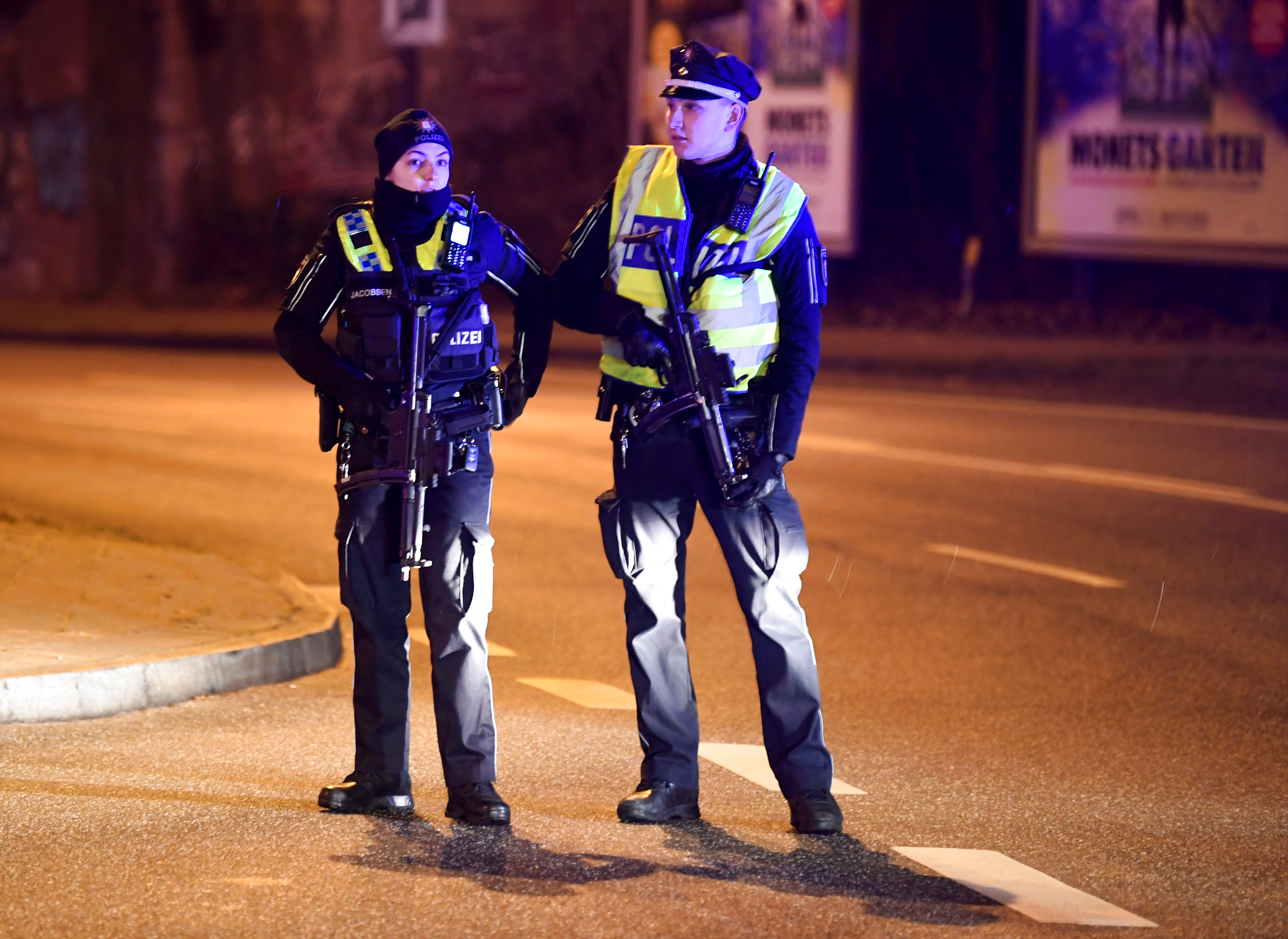
views
Several people have been killed in a shooting at a Jehovah’s Witness centre in Hamburg, with the gunman believed to be among the dead, German police said Thursday. Police have not given a death toll, but multiple local media outlets reported that the shooting had left seven dead and eight seriously injured. “At the moment there is no reliable information on the motive of the crime,” police said, urging people not to speculate.
An alarm for “extreme danger” in the area had been sounded using a catastrophe warning app, but Germany’s Federal Office for Civil Protection lifted it shortly after 3 am local time.

Who Are Jehovah’s Witnesses?
In the non-descript, three-storey building, police said an event had been taking place on Thursday evening. Jehovah’s Witnesses had gathered for a weekly Bible study meeting, according to local daily Hamburger Abendblatt.
There are about 175,000 people in Germany, including 3,800 in Hamburg, who are Jehovah’s Witnesses, a US Christian movement set up in the late 19th century that preaches non-violence and is known for door-to-door evangelism.
The first officers at the scene found several lifeless bodies and seriously wounded people, police said. Hamburger Abendblatt reported that 17 unhurt people, who had been at the event, were being attended to by the fire brigade.

Rise of Extremism in Germany
Germany has been rocked by several attacks in recent years, both by jihadists and far-right extremists. Among the deadliest committed by Islamist extremists was a truck rampage at a Berlin Christmas market in December 2016 that killed 12 people, AFP reported. The Tunisian attacker, a failed asylum seeker, was a supporter of the Islamic State jihadist group. Europe’s most populous nation remains a target for jihadist groups in particular because of its participation in the anti-Islamic State coalition in Iraq and Syria.
According to a report by TRT World, rights groups noted record-breaking numbers of far-right attacks against “ethnic and religious minorities in 2020. As per government statistics, the report says, 23,000 far-right extremist attacks were recorded in 2020 – nearly 20 percent more than the year before.
Between 2013 and 2021, the number of Islamists considered dangerous in the country had multiplied by five to 615, according to interior ministry data. But Germany has also been hit by several far-right assaults in recent years, sparking accusations that the government was not doing enough to stamp out neo-Nazi violence.
In February 2020, a far-right extremist shot dead 10 people and wounded five others in the central German city of Hanau. And in 2019, two people were killed after a neo-Nazi tried to storm a synagogue in Halle on the Jewish holiday of Yom Kippur.
‘Violent Coup Fantasies’
A few months, the country had grappled with a plan to overthrow the German government and authorities had arrested 25 people for planning the radical right-wing coup. Federal prosecutors said some 3,000 officers conducted searches at 130 sites in 11 of Germany’s 16 states against adherents of the so-called Reich Citizens movement. Some movement members reject Germany’s postwar constitution and have called for bringing down the government.
Justice Minister Marco Buschmann described the raids as an “anti-terrorism operation,” adding that the suspects may have planned an armed attack on institutions of the state.
Germany’s top security official said the group was “driven by violent coup fantasies and conspiracy ideologies.”
‘Rise of AfD’
Lukas Hermsmeir, writing for the New York Times on the rise of right-wing extremism in Germany, has called the rise of the AfD, a sign of a ‘problem in Germany’. The Alternative für Deutschland (AfD) is a German far-right populist party, founded in 2013.
As per a report by Al Jazeera, the AfD began as an anti-euro party. “This is a very important moment in German history… They are trying to exploit people’s fears and make them bigger,” Julian Gopffarth, researcher at the London School of Economics’ European Institute was quoted as saying by Al Jazeera.
As per the report, the party had formed in response to the European debt crisis which marked the years preceding its launch, were against German-backed bailouts of Europe’s struggling southern economies, like Greece.

A number of Eurosceptic academics endorsed their manifesto, and had supported the party’s manifesto, which called for the dissolution of the euro currency and ‘less centralisation of power in Brussels,’ the report says.
In 2017, the party failed to win the needed five percent of votes to gain representation in the German parliament, but made a mark by winning 4.7 per cent votes.
Hermsmeir writes that AfD has developed into an ‘even more extremist and antidemocratic force’. He says the party is led by people such as Bjorn Hocke, who can be described legally as a fascist as per a court ruling.
He says the party has its strongholds in eastern states like Thuringia and Saxony, “regions where unemployment is higher than in the west, public infrastructure has been dismantled, and young people move away when they get the chance.”
According to him, after the dissolution of the Germany Democratic Republic in 1990, the “economic abandonment” that hit eastern Germany was an entirely different picture from what was promised by former chancellor Helmut Kohl. He calls it a major factor in AfD’s popularity.
A Right-wing Rise in Military Too
The rise of right-wing conspiracy and feeling has also been reported in the German military. Berlin-based journalist Peter Kuras told NPR, :We’ve seen, you know, for ages not only that there have been these sort of series of serious conspiracies within the German military. We’ve also seen that the – exactly the organizations and agencies that should be responsible for observing them have been failing to do so and failing to act against them.”
“And while part of that is certainly that these are complex issues and not easy investigations to carry out, it’s also hard to avoid the feeling that there’s some real complicity or some real sympathy with these figures within many parts of the military and police establishment in Germany,” he says.
With inputs from AFP
Read all the Latest Explainers here



















Comments
0 comment